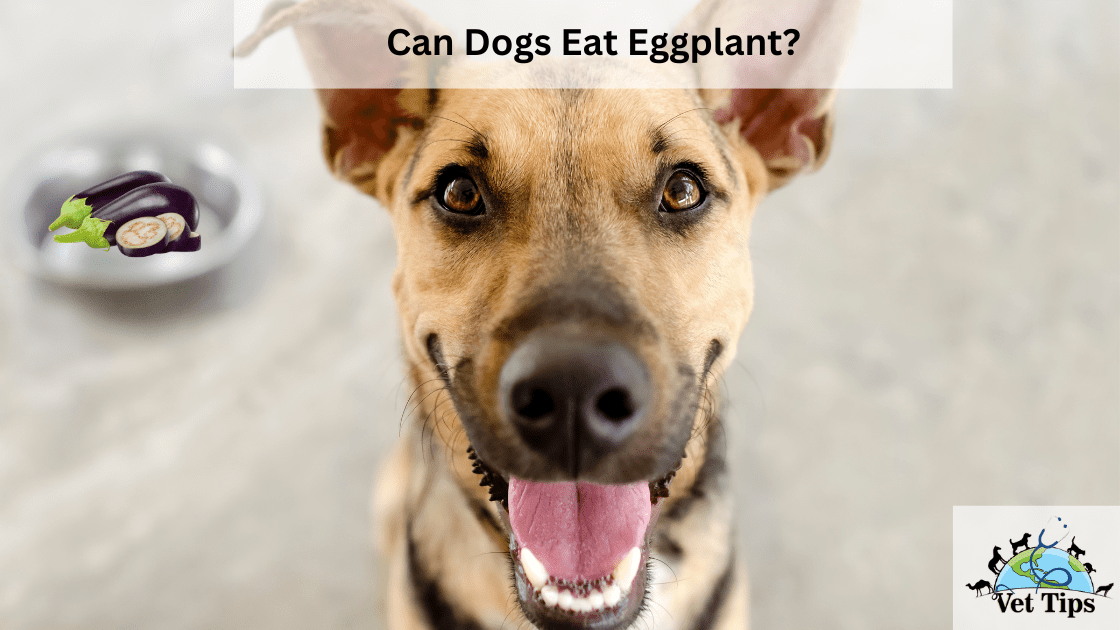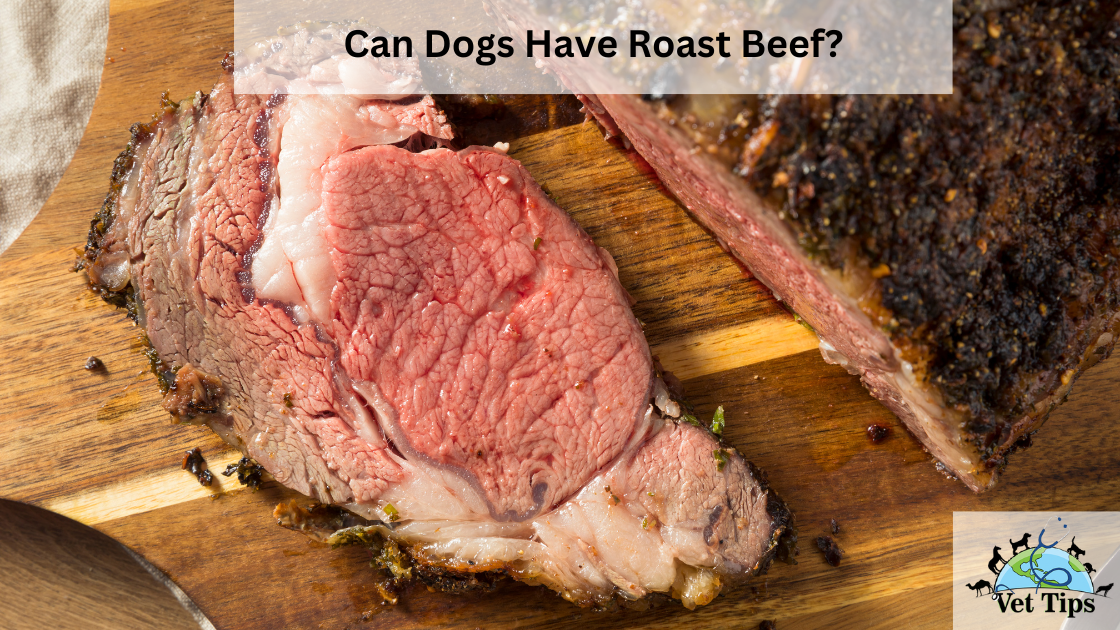Are you a dog owner who loves to share your food with your furry friend? It’s essential to ensure that whatever you offer is safe for their consumption. One food that often raises questions among pet owners is eggplant. In this article, we’ll analyze Can Dogs Eat Eggplant? and provide you with a comprehensive guide to making informed decisions about feeding eggplant to your canine companion.
Can dogs eat Eggplant?
The short answer is yes, but in moderation. Eggplants themselves are not toxic to dogs, and many canines can tolerate small amounts without any issues. However, there are some important factors to consider before offering eggplant to your furry friend.
Eggplant is named because it has an egg-like form and a vivid purple hue. Garden Egg and Guinea Squash are some other names for Eggplant we commonly eat.
If you are a great lover of Eggplant and eat it daily, it will not be long before your dog expresses an interest in trying it as well.
So,
Is it Safe for Your Canine Companion to Eat Eggplant?
Eggplant is safe for dogs to consume since it is neither harmful nor hazardous to most canines. There are some dogs; however, they should not be fed Eggplant because of health concerns.
As a starting point, if your dog is allergic to Eggplant, you should avoid feeding it to him for obvious reasons since it is likely to create an unfavourable reaction in him.
A second reason is that if your dog suffers from inflammation-related issues like arthritis, you may want to avoid feeding him Eggplant.
It is recommended that you should not feed your dog Eggplant since it has anti-inflammatory properties that may exacerbate his existing medical condition. While there is no assurance that this impact would occur, it would be prudent to avoid taking the chance.
Finally, if your dog suffers from renal problems, you may want to avoid serving him Eggplant because it contains a high concentration of oxalate, which might exacerbate existing renal problems in some dogs.
Pros and Cons of Eggplants for Dogs
To understand the benefits and risks, let’s conduct a comparative analysis of feeding eggplant to dogs:
Pros:
- Nutrient Content: Eggplants contain essential vitamins and minerals that can contribute to a balanced diet for dogs when given in moderation.
- High in Fiber: The fiber content in eggplant can aid in digestion and promote gastrointestinal health.
- Low-Calorie: For overweight dogs, eggplant can be a low-calorie treat option.
Cons:
- Solanine Content: Eggplants belong to the nightshade family, which contains solanine—a natural chemical that can be toxic in large quantities. While eggplants have lower solanine levels compared to other nightshade plants like tomatoes, it’s still crucial to avoid overfeeding.
- Potential Allergies: Some dogs may have allergies to certain vegetables, including eggplant. Introduce it gradually and monitor for any adverse reactions.
- Digestive Issues: Feeding large amounts of eggplant can lead to digestive upset, including diarrhea and vomiting.
Eggplant Nutritional Information
To provide a visual representation, here’s a graph and table showcasing the nutritional information of eggplant (per 100 grams):
| Nutrient | Amount |
|---|---|
| Calories | 25 |
| Carbohydrates | 5.7g |
| Fiber | 3g |
| Protein | 0.98g |
| Fat | 0.18g |
| Vitamin C | 2.2mg |
| Vitamin K | 3.5mcg |
| Vitamin B6 | 0.084mg |
| Potassium | 229mg |
| Magnesium | 14mg |
When it comes to feeding your furry companion, what type of Eggplant should you use?
If at all feasible, it is best to provide your dog with an organically grown Eggplant as a treat. The primary reason why you should strive to feed your dog organically produced Eggplant is that artificially grown Eggplant frequently contains pesticides, which is why you should try to feed your dog organically grown Eggplant. These pesticides are frequently understudied, and many people feel that their pets can have negative health consequences.
Organically produced Eggplant, on the other hand, maybe more expensive than non-organically cultivated Eggplant. Many people, however, believe that it is a price worth paying because they are less of a danger to dogs.
How to Prepare an Eggplant Meal for Your Dog?
It is strongly recommended that you give your dog Eggplant that has been completely cooked, even though some people may choose to do otherwise. If at all possible, avoid feeding your dog raw Eggplant to keep him healthy.
Because heating destroys any potentially hazardous components that may be present in raw Eggplant, it is preferable to serve cooked Eggplant over raw Eggplant for the majority of situations.
Eggplants may be prepared in various methods, including grilling, roasting, and boiling, among others. However, frying Eggplant is not recommended if you intend to feed it to your dog, even if your pup likes the taste of fried Eggplant.
A significant amount of oil and fat will be present in deep-fried Eggplant, making it an unhealthful addition to your dog’s diet.
Why Is Eggplant Beneficial to Your Canine Companion?
One of the reasons that Eggplant is beneficial to dogs is that some of the nutrients found in Eggplant can assist in avoiding Heart Disease in some dogs. Eggplant is high in potassium, fibre, phytonutrients, vitamin B6, and vitamin C, all of which can help in reducing heart issues in canines who consume it.
It has also been shown that increasing your dog’s consumption of anthocyanins, which are also present in Eggplant, will decrease their blood pressure.
Eggplant contains usually possess a high concentration of chlorogenic acid, which has been proven in studies to be beneficial in preventing cancer, dangerous microorganisms, high cholesterol, and viral infections.
Nasunin, an anthocyanin phytonutrient found in Eggplant. While the claims have not been proven, some experts think that Nasunin aids in enhancing your dog’s brain function and preventing brain damage in your dog.
Finally, because Eggplant is very low in calories, it might be an ideal choice for feeding to your canine companion if he or she is overweight or trying to avoid gaining weight.
When compared to Eggplant, many other vegetables that are similarly related to it have high-calorie content. As a result, Eggplant is often the first option.
FAQs: Can dogs eat Eggplant?
Can dogs eat cooked eggplant?
Yes, cooked eggplant is generally safer for dogs than raw. Cooking breaks down some of the tough fibers, making it easier for dogs to digest.
Is eggplant parmesan safe for dogs?
Eggplant parmesan dishes often contain added ingredients like cheese, which can be high in fat and sodium. While small amounts might not harm most dogs, it’s best to avoid dishes with excessive added ingredients.
Can dogs eat eggplant skin?
The skin of eggplant is safe for dogs to consume, but remember that it may contain higher concentrations of solanine compared to the flesh.
Tell us in the comments, how you like our article “Can dogs eat Eggplant?”
For similar posts like this, click here.
For the source file, click here.









One thought on “Can Dogs Eat Eggplant?”